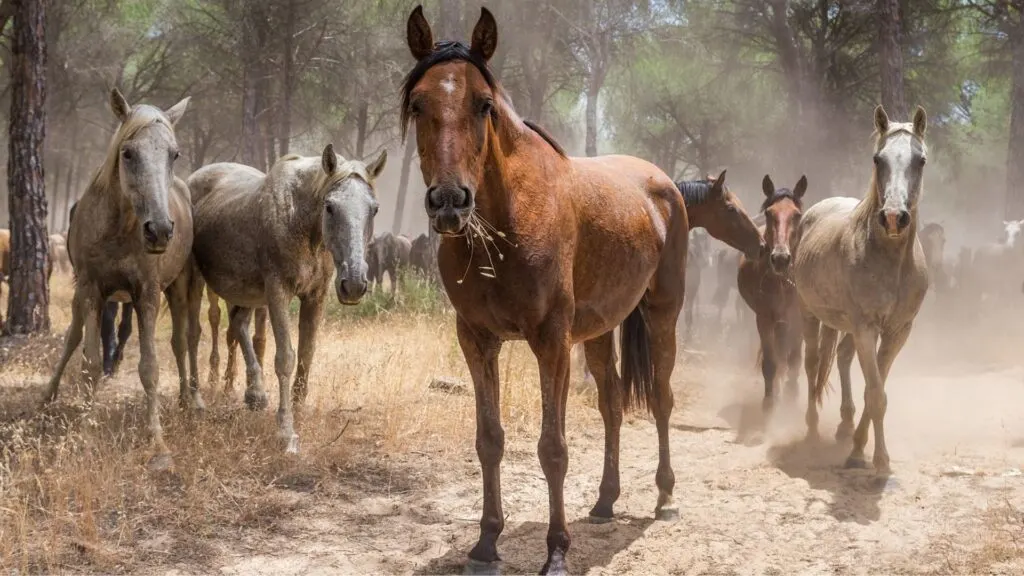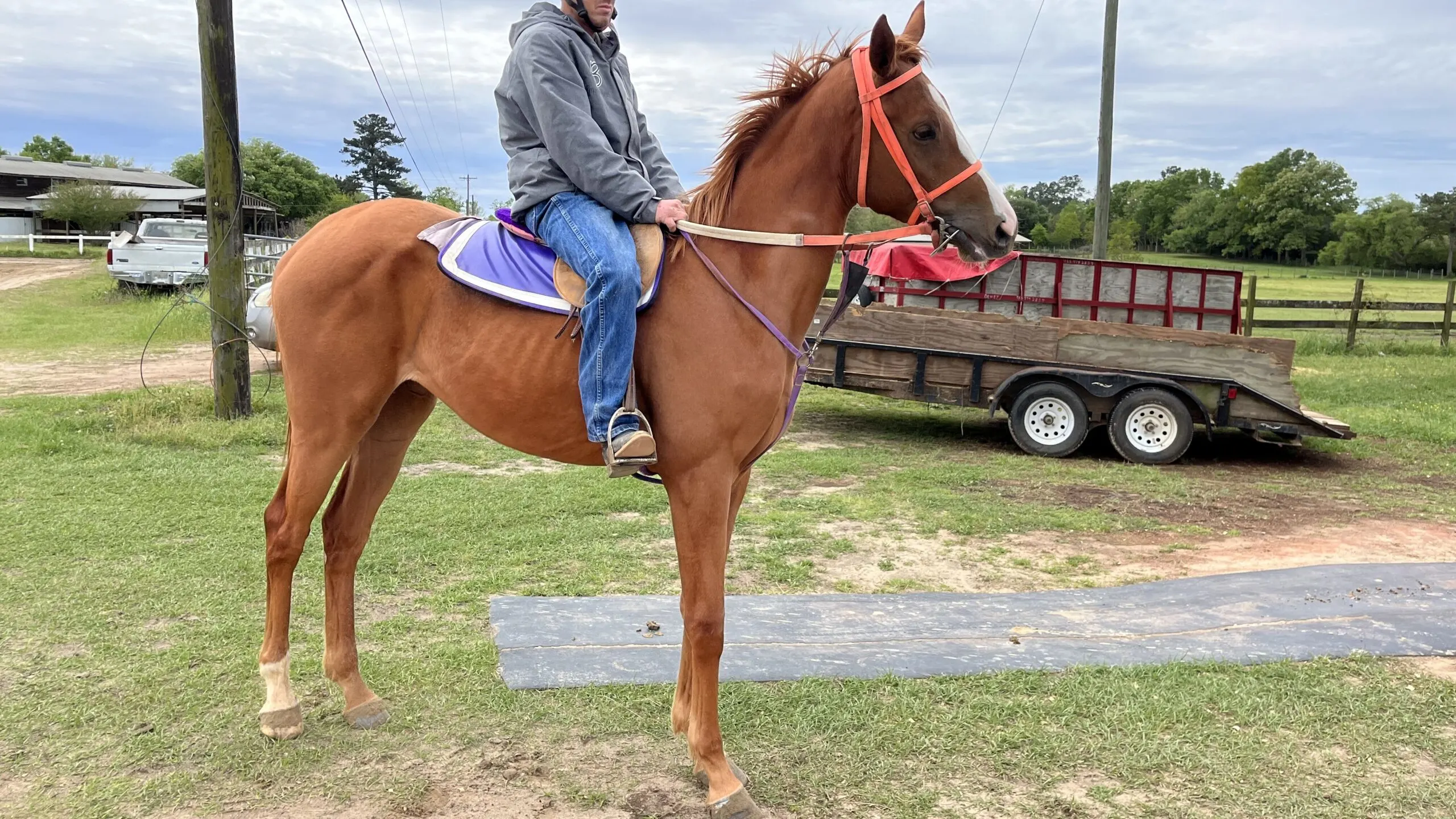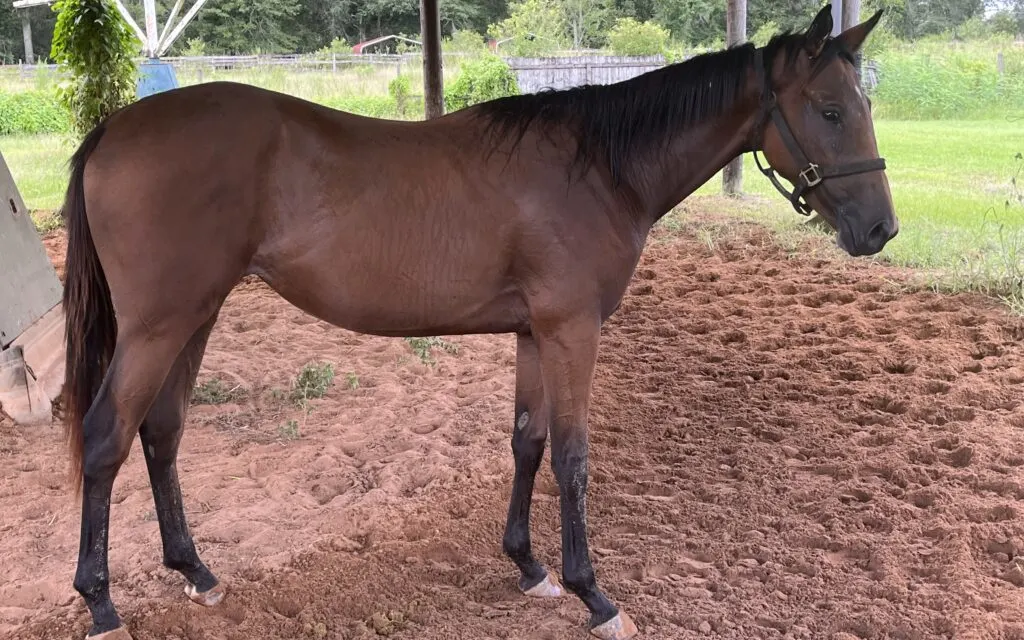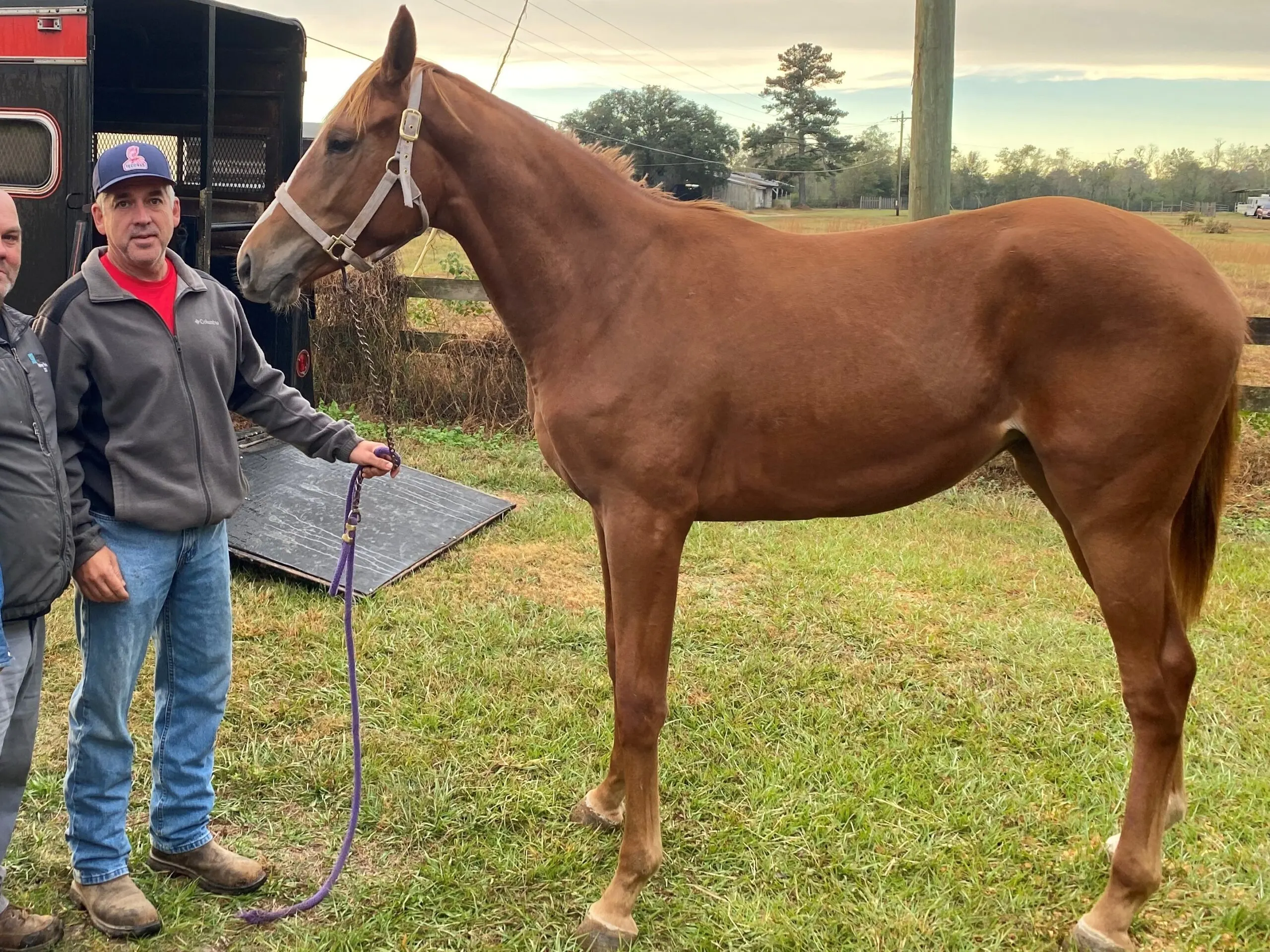Last updated: April 15, 2024
Seeing your horse lose weight can be worrying, especially when you’re feeding them as usual. It’s tough to watch and important to figure out why it’s happening. This could be due to reasons like dental problems, stress, or health issues.
In this article, we’ll explore these common causes and how you can help your horse gain weight. Let’s get started and find ways to get your horse back to feeling and looking good.

Understanding and Managing Weight Loss in Horses
Here’s a look at why horses might lose weight and what you can do about it:
Dental Problems
- Cause: If your horse has trouble chewing or drops food, they might have dental issues.
- Treatment: Get regular dental checks and treatments like teeth floating to make eating easier and more effective for your horse.
Parasitic Infections
- Cause: Worms and other parasites can stop your horse from getting all the nutrients from their food.
- Treatment: Work with your vet to start a de-worming program that meets your horse’s needs.
Poor Nutrition
- Cause: If the diet isn’t right, your horse might not be getting what it needs to stay healthy, especially if it is very active or older.
- Treatment: Check the diet and improve it with help from a nutritionist. Supplements might be needed. In addition your horse may stop eating because of an underlying health issue.
Health Conditions
- Cause: Problems like stomach ulcers, Cushing’s disease, or thyroid issues can make a horse lose weight.
- Treatment: Your horse may stop eating because of an underlying health issue. See your vet for options targeting your horse’s specific health issues.
Stress and Environment
- Cause: Changes in surroundings or routine can stress your horse and affect their health.
- Treatment: Keep your horse’s environment calm and routine consistent to help them feel secure and manage stress.

Diagnosing the Issue
If your horse is losing weight, getting help from a vet is crucial. A vet can figure out what’s wrong and how to fix it.
Visiting the Vet
Here’s what usually happens during a vet visit:
- Physical Exam: The vet will check your horse to see if there are any obvious signs of health problems.
- Dental Check: Your horse’s teeth will be examined to ensure no issues, such as missing or damaged teeth, could cause eating problems.
- Blood Tests: These can help find any hidden health issues that might be causing your horse to lose weight.
Seeing a vet is the best step to understand why your horse is losing weight and to start the right treatment.

Preventive Measures to Avoid Weight Loss in Horses
To keep your horse healthy and at a good weight, consider these steps:
Regular Veterinary Check-Ups
- Why It’s Important: Catch health issues early before they lead to weight loss.
Keeping a Feeding and Care Diary
- Purpose: Track your horse’s diet and health routines, which can help spot changes that may affect their weight.
Routine Dental Care and Parasite Control
- Dental Care: Regular check-ups and treatments like teeth floating help ensure your horse can eat properly without discomfort.
- Parasite Control: Regular deworming keeps harmful parasites at bay, ensuring your horse gets the full benefit of their nutrition.
These preventive measures are key to maintaining your horse’s health and preventing issues that could lead to weight loss. Regular monitoring and proactive care are essential in managing and preventing health problems.

FAQs: Why is My Horse Losing Weight?
What are the most common causes for a horse to lose weight?
The most common reasons horses lose weight include dental problems, parasitic infections, poor nutrition, health conditions like ulcers or thyroid issues, and stress.
What can cause rapid weight loss in a horse?
Severe malnutrition, sudden changes in diet, serious health issues, high parasite infestations, or extreme stress can cause rapid weight loss in horses.
Can worms in horses cause weight loss?
Yes, internal parasites or worms can cause weight loss in horses by competing for nutrients, damaging the digestive system, and affecting overall health. Implement a routine deworming plan to keep your horse worm-free.
What is the best feed for weight gain in horses?
The best feed for weight gain depends on the individual horse’s needs. High-quality forage, calorie-dense feeds like beet pulp, and balanced fat and protein supplements can help promote weight gain. Consult an equine nutritionist for personalized recommendations.
How do I ensure my horse’s diet is balanced?
Work with an equine nutritionist or vet to evaluate your horse’s diet. They can help you adjust the feed to ensure it meets your horse’s nutritional needs based on their age, weight, and activity level.
Can stress cause my horse to lose weight?
Yes, stress can impact your horse’s appetite and overall health. Ensure a stable routine, minimize environmental changes, and provide a comforting and secure environment.
Conclusion: Why is My Horse Losing Weight?
Understanding why your horse is losing weight is important for keeping them healthy. If you catch the problem early, you can manage it effectively and help your horse regain and maintain a healthy weight.
Take Action Now: If you found this guide helpful, consider subscribing to our newsletter for more tips on horse health. Have you dealt with weight loss in your horse? Share your story or reach out for personalized advice to help others in our community care for their horses better.
Recommended Equine Health Authorities
- American Association of Equine Practitioners (AAEP): Visit AAEP
- The British Equine Veterinary Association (BEVA): Visit BEVA
- Equine Research Foundation: Visit Equine Research Foundation
- Journal of Equine Veterinary Science: Visit Journal of Equine Veterinary Science
- International Society for Equitation Science (ISES): Visit ISES
- The Horse: Your Guide to Equine Health Care: Visit The Horse
- Equus Magazine: Visit Equus Magazine
- Merck Veterinary Manual (Equine Section): Visit Merck Veterinary Manual
- Royal College of Veterinary Surgeons (RCVS): Visit RCVS
- American Veterinary Medical Association (AVMA): Visit AVMA
Meet Miles Henry
An avid equestrian and seasoned racehorse owner, Miles Henry brings his extensive experience to the equine world, proudly associating with the AQHA, The Jockey Club, and various other equine organizations. Beyond the racetrack, Miles is an accomplished author, having published various books about horses, and is a recognized authority in the field, with his work cited in multiple publications.
🔗 Connect with Miles:
Twitter
Facebook
YouTube: Check out race highlights, horse care tips, and more!

